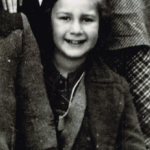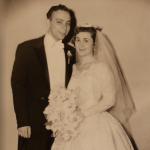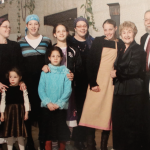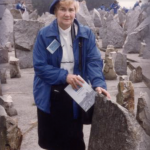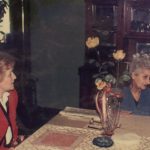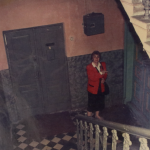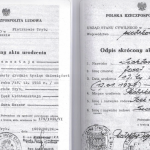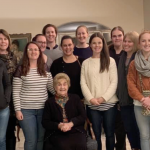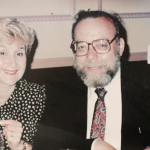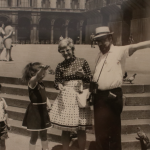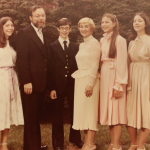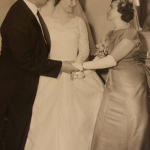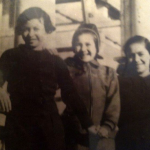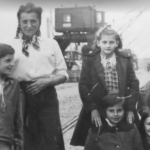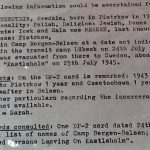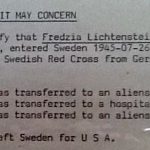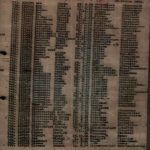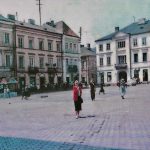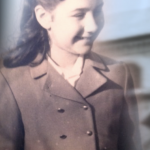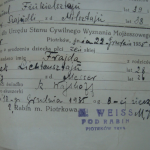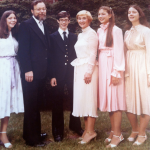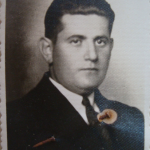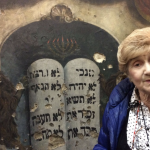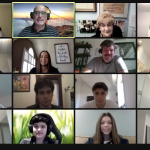Rena Quint was born in 1935 and 1936, depending on the source. This is because of her early life circumstances, before and after the Shoah. Her birth family, her two parents and her two brothers, did not survive, and her adoptive mother in Sweden changed Rena’s birthdate to match that of her own deceased daughter. Rena was only 3 when the war began, so her memories of the start of the war – and of her family – are hazy. She remembers taking shelter when the bombs began to fall, and she remembers the terrible reality of the liquidation of the ghetto, when she was separated from her mother and brothers, miraculously making it out of the schoolhouse and synagogue. Her mother and brothers, and most of the rest of her family and community, was deported to Treblinka, where they were murdered. Rena was deported to a work camp, where she found her father, who decided his young daughter had a better chance of survival as a boy. She adapted, and the men in the camp protected her. As the end of the war drew near, Rena was separated from her father and deported to Bergen Belsen, where she endured the brutal realities of that camp, where she was liberated by the British. Rena and other camp survivors were taken to Lubeck, and from there to a DP camp in Sweden. Along the way Rena was saved and raised by many women she calls her mothers, and this happened yet again when she emigrated to the United States, where she assimilated into the life of an American child. Rena did all the things American child wanted to do in that period, and she eventually married and raised her own family. Her desire to learn about her biological family never subsided, and it led her to Israel, where she researched her genealogy and eventually decided to make aaliyah, moving to Israel in the 1980s. There Rena became involved with Yad Vashem, leading students and people through her story and the larger narrative of the Shoah. We thank the Yad Vashem Educators’ Institute for connecting us to Rena, and for facilitating this interview.
Videos
Click next video below to keep watching
